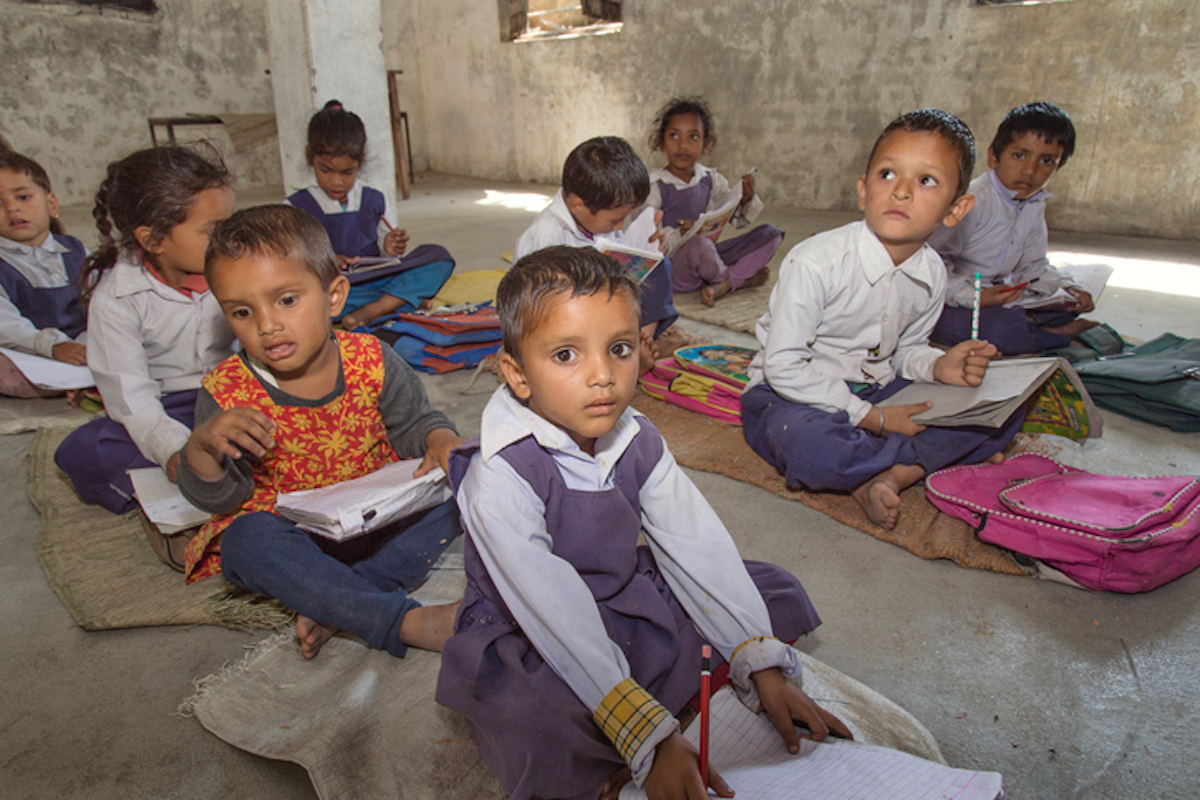Covid spread rare in schools with masking: Study
All schools in the pilot study required students, teachers, staff and visitors to wear masks while on campus or buses.
The past couple of years’ disruption due to the Covid 19 Pandemic has brought many obstacles and inequalities in learning to the education system.

School in a Delhi slum.
“We could only afford one smartphone in a family of five children, during the school closures amid the Covid 19 Pandemic, my children, all fought over this one smartphone as their class timing used to be the same, they blamed each other for their missed classes, now they don’t want to go to school, they say they cannot understand a thing the teacher says and they sometimes feel ashamed learning while being with other students,” says a mother of five adolescent kids, Pooja, wife of a temple priest (pandit), a resident of New Delhi.
The past couple of years’ disruption due to the Covid 19 Pandemic has brought many obstacles and inequalities in learning to the education system.
The ones who survived the Pandemic in all aspects were the people who are above the poverty line. The pandemic has resurfaced the unrealized inequalities we have been living in. Who’s to blame? Once Martin Luther King, Jr. said, “Capitalism does not permit an even flow of economic resources.” Inequality is an inevitable product of capitalist activity. The gap between the privileged and unprivileged moves parallel or even wider whenever there is a development or advancement in the capitalist society. Simply because the upper middle class or middle class can exploit the opportunity to an extent where the lower middle class or economically weaker section fails to catch up.
Advertisement
Bhola, an ex-construction worker, who left the city to move back to his village in Bihar said, “I had no work, I had no money, my wife is sick, she has never recovered fully after Covid 19 disease took over her health, how am I supposed to send my daughter and son to school and I have no money, I can’t afford, my daughter now helps her mother, and my son is helping me on our farming land.” Every poor family or child living in such conditions in our country is going through a similar plight.
This is where we need Government interventions, and policymakers to intervene to create focused and new improved education policies to bridge economic and learning gaps created between the poorest and the richest of the country. So that every child in the country can return to school and study in a supportive environment, that can also address their health, psychological well-being, and other needs.
The efforts for Online education and e-learning remained laudable, but can nowhere substitute in-person learning. Many couldn’t afford online education and didn’t even have any access to learning merely.
There are a few steps suggested by the World Bank Organisation as they are partnering with – UNESCO, and UNICEF for the World’s countries to realize the gravity of the issue, the loss of learning, and disparity in the system, and therefore every school can do the needful. Their mission is to plan, prioritize, and make sure that all students and learners return to school, be it from any strata of society. The educators and teachers should be trained to provide remedial classes, aid recovery, and e-learning assistance if required to meet the learning losses, and help improve children’s overall welfare. Here are few strategies suggested:
Educators and policymakers must ensure that all the children who were enrolled in schools prior to Covid 19 should return to school. If they are not available to resume their studies, the reason should be tracked down. The Government must take every measure to bring them back to school, by assisting their family to that extent.
Many children have lost touch with many subjects and topics due to various other distractions like lack of access to gadgets and the unavailability of technology for online classes. The schools must implement special classes or after-school classes for the students who need to catch up on their studies. Individual attention must be given to every student.
Since many subject-specific teachers don’t have formal training in e-learning digital technology and updated knowledge regarding the same, they must be given formal training and updates from time to time. Therefore, they can help children as well as find tech-savvy ways to impart their knowledge.
Many schools are following reopening strategies, still, they aren’t able to meet the gap. There is an urgent need to devise improved planning and implementation of the strategies. Also, this time when it is significant to focus our strategies on children’s psycho-social wellbeing along with their education, health, and other needs.
Advertisement